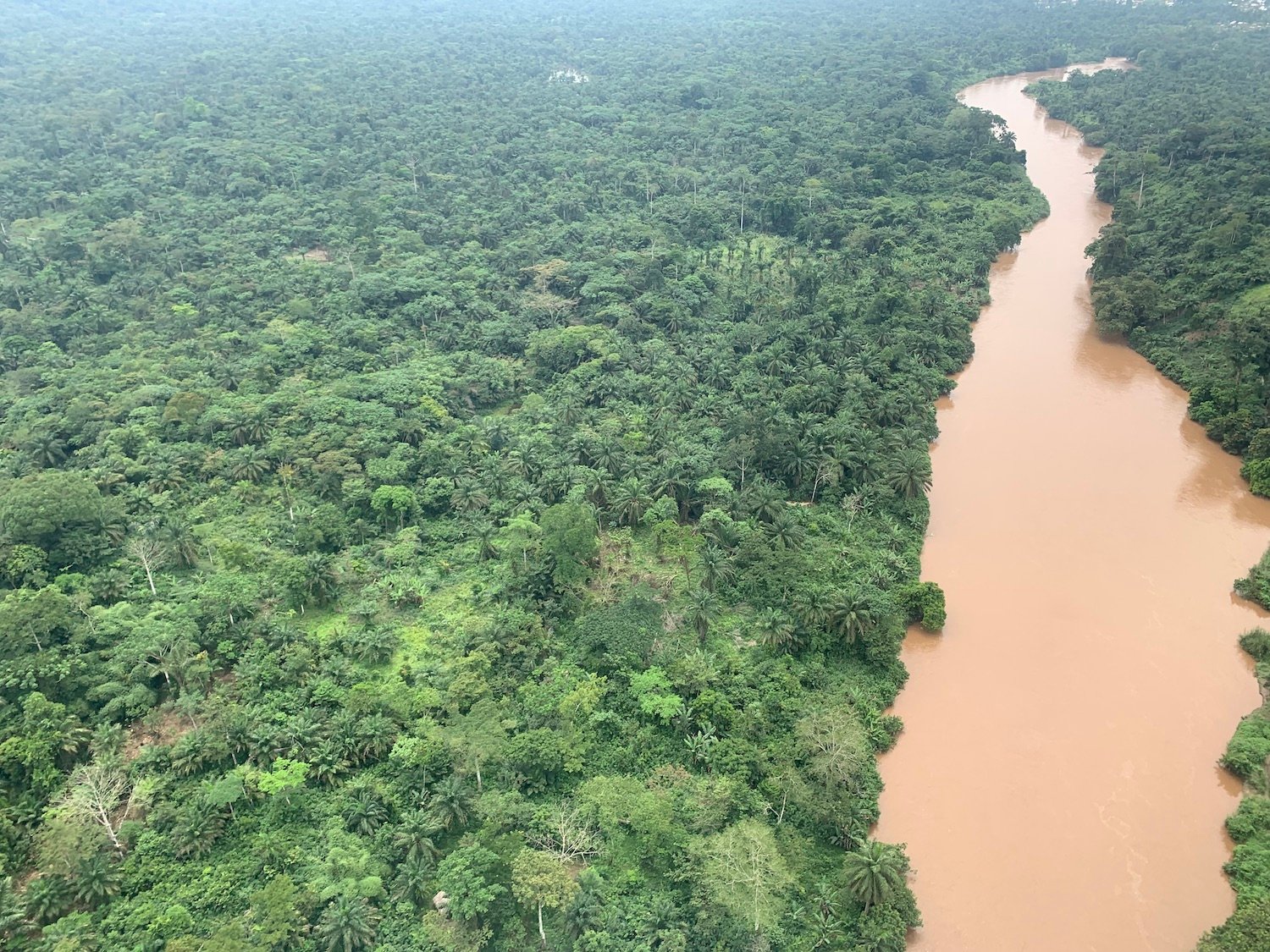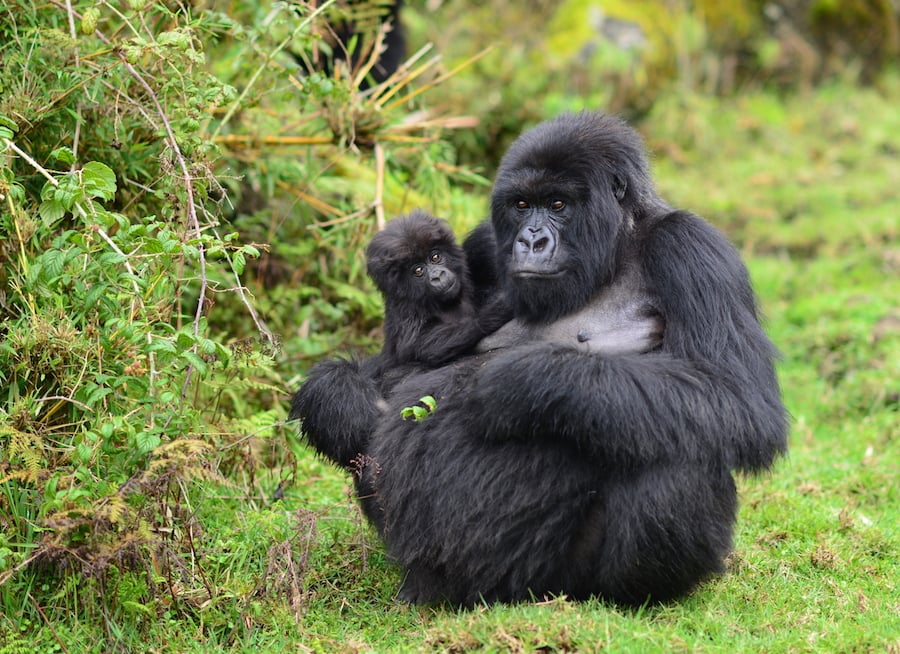May 2004
Despite Poaching, 2003 Mountain Gorilla Census Shows 17% Increase since 1989
Dian Fossey began the extraordinary legacy of her study of mountain gorillas in Kabara meadow, in the Democratic Republic of Congo, in January 1967. By September of that same year, she moved her research site to the Rwandan side of the Virungas and founded the Karisoke Research Center (KRC), where she worked until her assassination in 1985.
DFGFI continues the legacy of Dian Fossey, completely supporting the Karisoke Research Center, which has greatly expanded its programs and protection activities. This center of scientific excellence now partners with the Rwandan national park service (ORTPN) to provide protection and conduct scientific research on three groups of mountain gorillas in the Volcanoes National Park (PNV), Rwanda.
The success of our work is highlighted by the recently completed mountain gorilla census. DFGFI was a key partner in the funding and implementing this first full gorilla census in the Virungas in 15 years, which was completed at the end of 2003. A total of 18 members of Karisoke field staff participated as team leaders and members. When the results were analyzed, we found that there had been 17% growth in the gorilla population since the last census (in 1989), with a total estimated population now of 380 individuals. This increase was almost entirely a result of increases in the three gorilla groups monitored and protected by DFGFI (54 out of an overall increase of 56 gorillas).
Despite this success, anti-poaching activities are still essential, as was underscored by poaching incidents in 2002 that claimed the lives of 10 gorillas. Since then, improved security conditions have allowed the reestablishment of anti-poaching activities at Dian Fossey’s historic base camp (the original Karisoke site) high up at some 10,000 feet inside the Volcanoes National Park.
Karisoke Research Center was also instrumental in the recent organization of a mobile camp of anti-poaching staff composed of members from the park authorities of Rwanda and Congo (DRC). The camp is now a roving patrol unit comprised of members from all three organizations and moves across borders as needed. The location of the camp and the team members change each week, making it more difficult for poachers to find unprotected areas.






